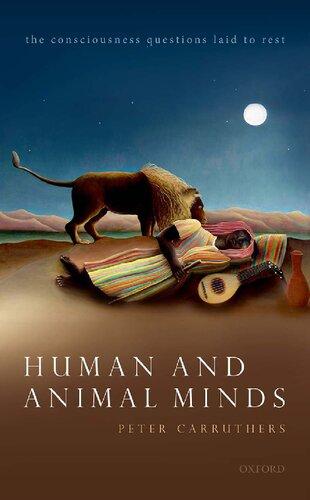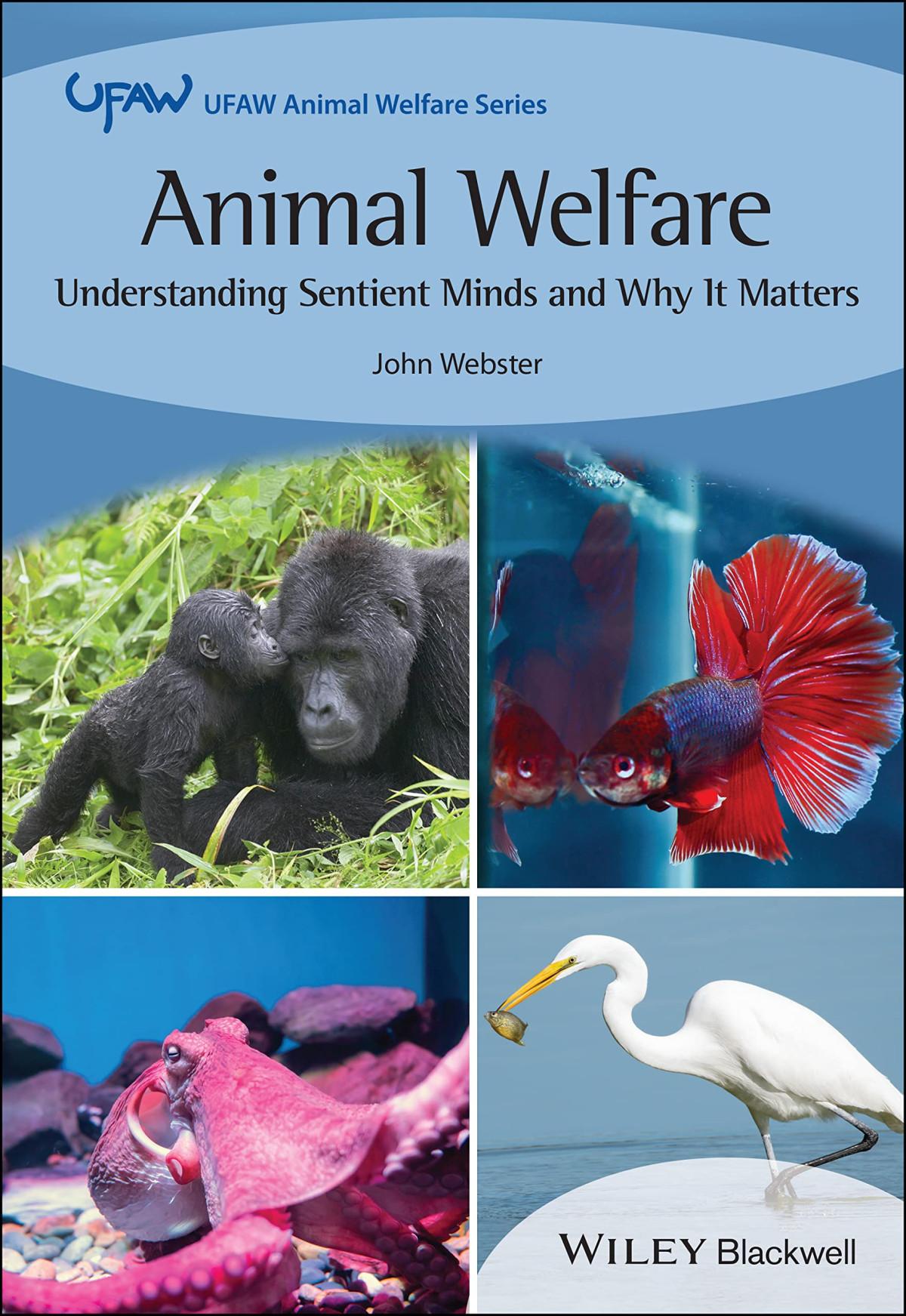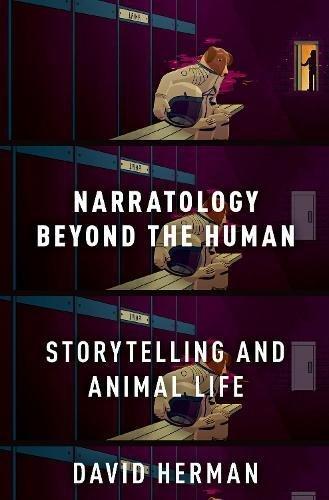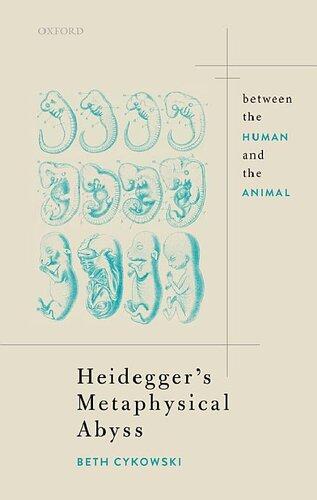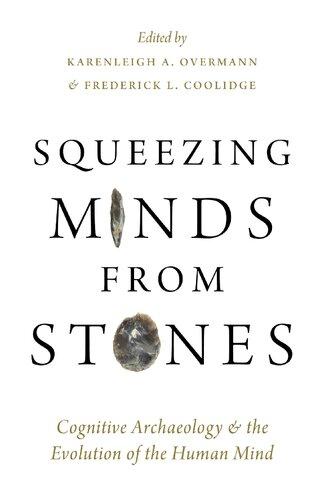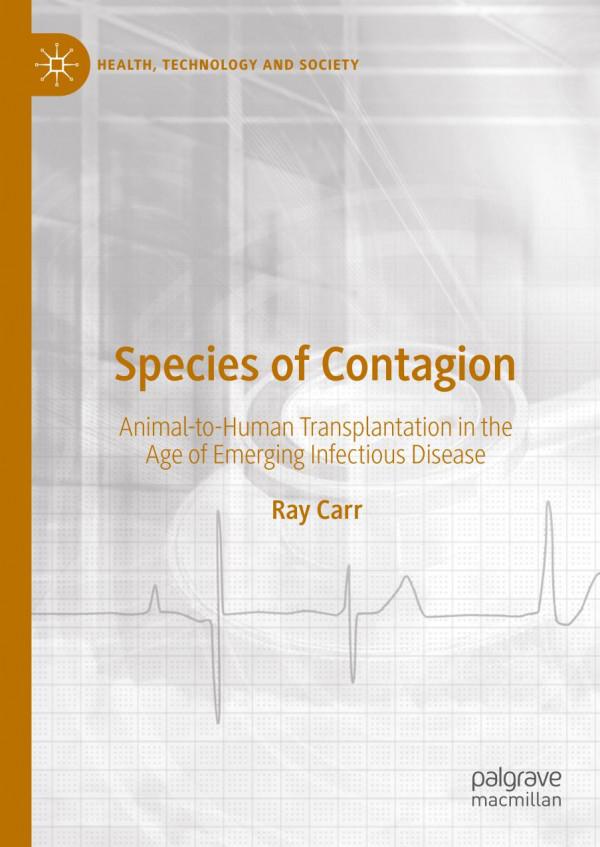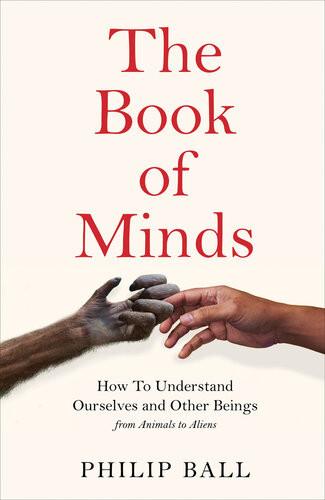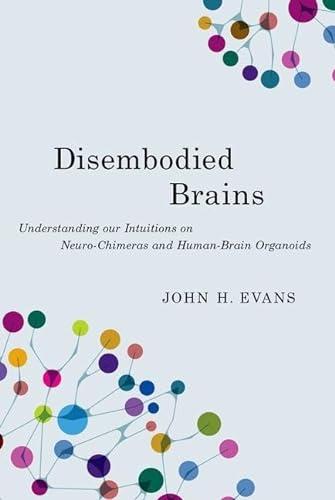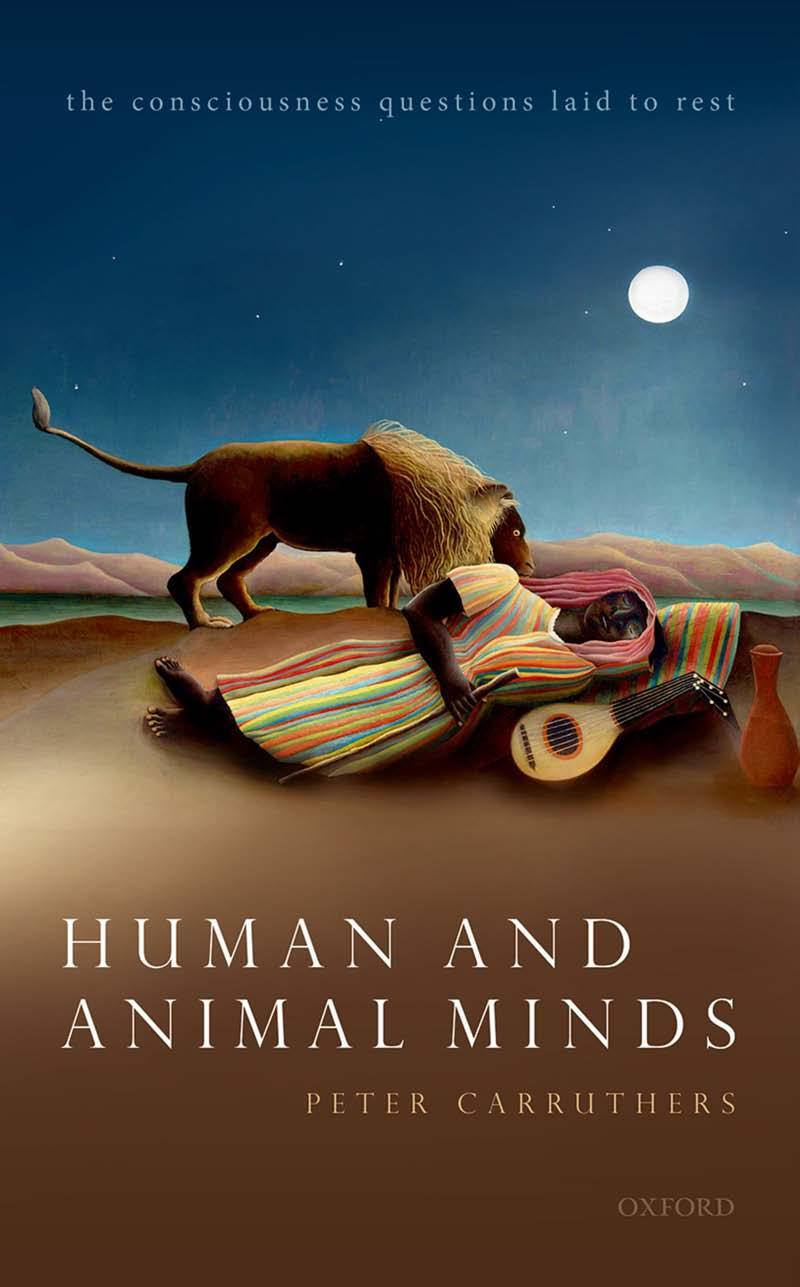HumanandAnimal Minds
TheConsciousnessQuestions
LaidtoRest
PETERCARRUTHERS
3
GreatClarendonStreet,Oxford,OX26DP, UnitedKingdom
OxfordUniversityPressisadepartmentoftheUniversityofOxford. ItfurtherstheUniversity’sobjectiveofexcellenceinresearch,scholarship, andeducationbypublishingworldwide.Oxfordisaregisteredtrademarkof OxfordUniversityPressintheUKandincertainothercountries
©PeterCarruthers2019
Themoralrightsoftheauthorhavebeenasserted
FirstEditionpublishedin2019
Impression:1
Allrightsreserved.Nopartofthispublicationmaybereproduced,storedin aretrievalsystem,ortransmitted,inanyformorbyanymeans,withoutthe priorpermissioninwritingofOxfordUniversityPress,orasexpresslypermitted bylaw,bylicenceorundertermsagreedwiththeappropriatereprographics rightsorganization.Enquiriesconcerningreproductionoutsidethescopeofthe aboveshouldbesenttotheRightsDepartment,OxfordUniversityPress,atthe addressabove
Youmustnotcirculatethisworkinanyotherform andyoumustimposethissameconditiononanyacquirer
PublishedintheUnitedStatesofAmericabyOxfordUniversityPress 198MadisonAvenue,NewYork,NY10016,UnitedStatesofAmerica
BritishLibraryCataloguinginPublicationData Dataavailable
LibraryofCongressControlNumber:2019947972
ISBN978–0–19–884370–2
DOI:10.1093/oso/9780198843702.001.0001
PrintedandboundinGreatBritainby ClaysLtd,ElcografS.p.A.
LinkstothirdpartywebsitesareprovidedbyOxfordingoodfaithand forinformationonly.Oxforddisclaimsanyresponsibilityforthematerials containedinanythirdpartywebsitereferencedinthiswork.
5.Global-workspacetheory
6.Explainingthe “hard
6.1.Therightlevelofexplanation
6.2.Thephenomenal-conceptstrategy
7.2.Broadcastingasanaturalkind
7.3.Stipulatingacategoricalboundary
8.6.Ofempathy,infants,andtheold
8.7.Ofmice,men,andMartians
Preface
Therehasbeena flurryofinterestinconsciousnessinanimalslately, includingbooksbyPeterGodfrey-Smith(2016)andMichaelTye(2017), aswellastheinaugurationin2016ofanewscientificjournal, Animal Sentience,devotedtothestudyofthetopic.¹Inpartthismayresultfrom increasingrecognitionofthestrongcontinuitiesthatexistbetween humanandanimalminds.Butitisalsobecausemanyofthosewhoare interestedinthemoralityofourtreatmentofanimalsthinkthatthe questionofconsciousnessisfundamental.Indeed,thereisalongtraditionamongutilitarians,atanyrate(stretchingbacktoJeremyBentham, 1789),oftreatingconsciousnessasthe “magicbullet” thatwilldetermine themoralstandingofthecreaturesinquestion.Thisiscertainlytrueof PeterSinger(1981,1993),forexample.Andeventhoseofamore Kantianpersuasionmightthinkthatconsciousnessiscriticalforthe questionwhethercertaintreatmentsofanimalsare cruel,andhence inconsistentwithdutiesofbeneficence.Aspeoplehavebecomeincreasinglyconvincedthatanimalsarecapableofgenuinementality,then,it hasseemedmoreandmoreurgenttoaddressthequestionofthe distributionofconsciousnessacrosstheanimalkingdom aswitnessed by TheCambridgeDeclarationonConsciousness (Lowetal.2012),signed byStephenHawkingandnumerousotherleadingscientistsattheFrancisCrickMemorialConferenceonJuly7,2012.
Iwillnotbechallengingthecontinuitiesbetweenhumanandanimal mindsinthisbook.Onthecontrary,Iwillbeemphasizingthemhere,as Ihavedonepreviously(Carruthers2004a,2006,2009a,2013a,2013b, 2015a).Buttheresultingfocusonanimalconsciousnessisamistake. Thisisnotbecauseanimals aren ’t conscious,butbecausethereisnofact ofthematter.Givenourbesttheoryofhumanconsciousness whichisa
¹Ishallrefertononhumananimalsas “animals” throughout althoughhumans,too,are animals,ofcourse.Thisisforsimplicityonly.Itiscertainlynotintendedasacommitmentto anysortofCartesianhumanexceptionalism.
fullyreductiveformofglobal-workspacetheory,Ishallargue any answertothequestionofanimalconsciousnesswillinvolveanimportant elementofstipulation.Evensupposingwehadfullknowledgeofthe mentalstatesandcognitiveorganizationofananimal,stillthefurther questionwhetheranyofthosestatesareconsciousoneswouldn’tadmit ofafactualanswer,Iwillsuggest.Asaresult,thequestionisofno scientificsignificance.Nordoestheissuehavethesortofmoralimportancethatmanypeopleassume.Sympathyforananimalcanbegrounded inknowledgeofitsdesiresandothermentalstates,independentlyofthe questionofconsciousness.
HowIproposetogetustothatpointwon’tbereviewedhere.(Readers interestedinlookingaheadshouldnotethateachchapterbeginswitha briefabstractand finisheswithaconcludingsummary.)AllIwillsayat thispointisthatthequestionofconsciousnessinanimalshasbeen overblownbecausetheso-called “hardproblem” ofconsciousness in humans hasbeenoverblown.Consciousnessinhumansonlymatters becausesomepeoplehavefounditdeeplypuzzling ledespeciallyby philosopherswiththeirthoughtexperiments,ofcourse.Oncethose puzzlesareremoved,wecanmoveontomoreimportantmatters.
PerhapsI should saysomethinghere,though,abouthowImyself arrivedatthispoint,sinceIhavepublishedviewsonthesetopicsthat differmarkedlyfromthosedefendedhere.Assomereadersmayknow, Ipreviouslydefendedaparticularformofhigher-order-thoughttheory ofconsciousness,knownas “dual-contenttheory” (Carruthers2000, 2005a).Ialsoarguedinthosebooksthatitisanimplicationofhigherordertheoriesgenerallythatmostspeciesofanimalare not phenomenallyconscious.Atthesametime,Iarguedthatweshouldtakethemental statesofanimalsquiteseriously,acceptingthattheyhavebelief-like states,desire-likestates,andperceptualstatesofvarioussorts (Carruthers2004a,2006),whilealsoarguingthattheabsenceofphenomenalconsciousnessfromanimalsdoesn’treallymattermuch (Carruthers1999,2004b,2005b).
OverthedecadeandmorethatfollowedIhardlythoughtaboutthe consciousnessissueatall,andpublishedbarelyanythingonthetopic. ButatthebackofmymindIwasbecomingincreasinglyuneasyabout thetheoryIhaddefended.First,itlacksanyformofempiricalsupport
thatisn’talsopossessedby first-orderglobal-workspacetheories.²Second,itrequiresonetobecommittedtoaparticulartypeofaccountofthe determinantsofintentionalcontent(namely,aspecificversionofthe viewthatthecontentofastatedepends,inpart,onwhatconsumer systemsforthatstateareapttodowithitorinferfromit).Andthird, IwasgraduallycomingtofeelthattheargumentsIhadusedtomotivate dual-contenttheoryover first-ordertheoriesofaglobal-workspacesort weren ’tverypowerful.Finally,Itooktheplunge(Carruthers2017b), recantedtheview,andcommittedtoglobal-workspacetheoryinstead.
Ihadalwaysassumedthat first-ordertheoriesofthesortdefendedby BernardBaars(1988),MichaelTye(1995),andotherswouldimplythat phenomenalconsciousnessis very widespreadintheanimalkingdom, beingpossessedevenbyinvertebrateslikeantsandbees(Carruthers 2007).Buthavingcometoaccepta first-ordertheoryformyself,and beginningtothinkmoredeeplyaboutitsimplications,Iwasnotsosure. SoIarrangedtoteachagraduateseminarinFall2017toaddressthe topic.OverthecourseofthatseminarIcametothinkthatglobalworkspacetheoristsofthesortthatIhadbecomeshouldsay,notthat mostotheranimals are phenomenallyconscious(northatthey aren ’t), butthatthereisnofactofthematter.AndthatistheviewIamdefending inthisbook.Onecarry-overfrommypreviousviews,however,isthat theissuedoesn’tmattermuch.(Anotheristhefundamentalroleplayed byphenomenalconceptsinresolvingthepuzzlessurroundingphenomenalconsciousness.)Somewhatironically,myultimategoalinthepresentbookistopersuadepeoplethattheycan andshould stop thinkingabouttheconsciousnessquestionaltogether.
Iamgratefultoanumberofpeoplefortheirhelp,advice,and criticism.Iamespeciallygratefultothegraduatestudentswhosuffered throughmy firstattemptstorethinkthetopic,andwhohelpedmeclarify myideas.Theyare:CaseyEnos,ChrisMasciari,ShenPan,AidaRoige, JuliusSchönherr,MoonyoungSong,andRavenZhang.Moreover,HeatherAdair,ChrisMasciari,ShenPan,AidaRoige,JuliusSchönherr,and SamuelWarrenvolunteeredtoreadmuchofanearlydraftofthebook, providingvaluablefeedback.Inaddition,IamgratefultoKeithFrankish,
²Indeed,thechapternewlywrittenformy2005a(chapter6)notedthatthespacebetween global-workspace-typetheoriesandmyowndual-contenttheorymightbequitesmall.
LukeMcGowan,LizSchechter,andBénédicteVeilletforcommentson earlierversionsofsomeorallofthismaterial,andtotheanonymous refereeswhocritiquedit.
Someportionsofthisbookaredrawnfromapairofrecentpapersof mine,andIamgratefultotheeditorsandpublishersinquestionfor permissiontomakeuseofit.Thetwopapersare:
“Comparativepsychologywithoutconsciousness,” reprintedfrom ConsciousnessandCognition,volume63,PeterCarruthers, “Comparativepsychologywithoutconsciousness, ” pp.47–60,Copyright©2018, withpermissionfromElsevier,doi:10.1016/j.concog.2018.06.012.
“Theproblemofanimalconsciousness,” Romanelllecturedeliveredat the92ndPacificDivisionmeetingoftheAmericanPhilosophical AssociationinSanDiego,CA,onMarch29,2018.Reproducedfrom ProceedingsandAddressesoftheAmericanPhilosophicalAssociation , volume92,PeterCarruthers, “Theproblemofanimalconsciousness” (2018PacificDivision),pp.179–205,Copyright©2018.
1 Importantpreliminaries
Thischapterengagesinsomeinitial butimportant ground-clearing andfoundation-building.Itstartsbydrawinganumberofdistinctions, morepreciselydelineatingourtarget,andsettingthetermsforthe debatesthatfollow.Itexplainssomeofthedifferentthingsthatpeople meanby “consciousness,” inparticular,aswellassomeoftheclaimsthat havebeenmadeaboutthenatureof first-personal or “phenomenal”— consciousness.Thechapteralsoarguesinsupportofapairofsubstantive thesesonthetopicthatwillberelieduponlater.Specifically,itargues thatphenomenalconsciousnessisexclusivelynonconceptualinnature, andthatitdoesn’tadmitofdegrees:itiseithercategoricallypresentor categoricallyabsent.Finally,thechaptersituatesthetopicofanimal consciousnessinrelationtothetraditionalproblemofotherminds.
1.1Kindsofconsciousness
Consciousnessresearchisbedeviledbyterminologicalconfusion.Infact, thereareanumberofdifferentthingsthatpeoplemeanbytheword “conscious.” Failuretodistinguishthemcanleadtoimportanterrors,as wellastofailuretoseewhataregenuinepossibilities.
Thekindofconsciousnessthatformsourtopicisso-called phenomenal consciousness.Thisisthesortofconsciousnessthatissaidtobe like something toundergo,orthathasadistinctivesubjective feel.Phenomenalconsciousnessisaspeciesofmental-stateconsciousness.Itismental states(seeingasunset,hearingadogbark,smellingcinnamon)thatcan bephenomenallyconscious. People arephenomenallyconsciousderivatively,byvirtueofundergoingphenomenallyconsciousstates.Inasking whetheranimals,too,havephenomenallyconsciousmentalstatesweare askingwhethertheirexperiencesare likesomething also.
HumanandAnimalMinds:TheConsciousnessQuestionsLaidtoRest.PeterCarruthers,OxfordUniversity Press(2019).©PeterCarruthers. DOI:10.1093/oso/9780198843702.001.0001
Itisphenomenalconsciousnessthatisthoughttogiverisetothe “hard problem” ofconsciousness(Chalmers1996).Foritseemsonecan conceiveofazombie acreaturethatislikeoneselfinallphysical, functional,andrepresentationalrespectsexceptthatitlacks this feeling (thedistinctivefeelingofthesmellofcinnamon).Likewise,thereseems tobeanunbridgeableexplanatorygapbetweenallphysical,functional, andrepresentationalfactsandone’scurrentconsciousexperience.No matterhowmuchoneknowsabouttheformer,itseemsonecanalways think, “Butwhyshouldall that feellike this?” Hencemanyhavebeen temptedtoconcludethatphenomenalconsciousnessinvolvesproperties (oftencalled “qualia”)thatcannotbereducedtoanycombinationof physical,functional,orrepresentationalones.Thisisqualiarealism,to discussionofwhichwereturninSection1.2.
Itshouldbeemphasizedthattheconceptofphenomenalconsciousnessisa first-personone.Thevariouslocutionsemployed(“likesomethingtoundergo,”“subjectivefeel,”“qualitativecharacter,” andsoon) areallintendedjusttodrawone’sattentiontoone’sownconscious experiences.Acquaintancewiththelatter(insomeorothersenseof thatphilosophicallyloadedterm)isanecessaryconditionforgrasping theconcept,andnodefinitionorthird-personexplanationcouldconfer understandingoftheconcept.Indeed,asBlock(1995)remarks,adapting acommentaboutjazzoftenattributedtoLouisArmstrong, “Ifyougotta askwhatitis,youain’tnevergonnaknow.” Hencephilosophicalzombies don’tjustlackphenomenalconsciousnessitself;theymustalsolack the first-person concept ofphenomenalconsciousness(Chalmers2006). Forbyhypothesis,thereisnothingforthemtobe first-person acquainted with.
IshouldalsoemphasizeherethatalthoughIam,ofcourse,forcedto writeaboutphenomenalconsciousnessandphenomenallyconscious propertiesfromanexternal(third-personandpublic)perspective,itis reallythe first-personconceptand first-personwaysofthinkingabout one ’sownexperiencethatareprimary.Hencethereneedbenocommitment,inthethird-personlocutionsthatIemploy,totherealexistenceofanydistinctivesetofpropertiesthatgetpickedoutwhenwe introspectourownexperiencesandthinkthingslike, “Howcouldany brainstategiveriseto this?” Indeed,whatsuch first-personthoughts reallysucceedinpickingoutisamajorcomponentofourpresent
inquiry.Iwillargueintheendthatwhatgetsreferredtoinsuchthoughts arejustthesameperceptualcontentsthatcanbeadequatelydescribed andattributedinthethirdpersonalso.Butthatissomethingthatneeds tobearguedfor,notassumed.
Phenomenalconsciousnessisatleastconceptuallydistinctfrom access consciousness(Block1995,2007).Bothareformsofmental-stateconsciousness:itismentalstatesthatarethoughttohavephenomenal properties,andthatcanbeaccessibletoenterintodecision-making, reasoning,andverbalreport.Ashasbeenstressed,however, phenomenal consciousnessisa first-personnotion.Onecanonlyunderstandwhat thatconceptisintendedtopickoutbydirectingone’sattentiontosome ofone’sownphenomenallyconsciousstates. Access consciousness,in contrast,isfunctionallydefined,andtheconceptcouldbefullyunderstoodbyazombie.Amentalstateissaidtobeaccessconsciousifitis accessibletoawiderangeofothersystemsforfurtherprocessing, specificallythoseinvolvedindecision-making,inreasoning,inissuing verbalreports,andintheformationoflong-termmemories.
Itiscontroversialwhetherornotthereisanyrealdistinctionbetween accessconsciousnessandphenomenalconsciousness.Putdifferently: althoughthe concepts arecertainlydistinct,itisdisputedwhetherthe twoconceptspickoutdistinctpropertiesorconvergeonthesame property.Therearethreeseparablestrandsinthisdebate.
The firstisaboutso-called “cognitivephenomenology” (Bayne& Montague2011).Ontheassumptionthatthoughtsandconcepts,as wellasnonconceptualperceptualcontents,canbeaccessconscious,it isdebatedwhethertheymakeirreducible(asopposedtomerelycausal) contributionstopeople’sphenomenallyconsciousexperiences.Some havearguedthattheydo(Strawson1994,2011;Siewert1998,2011; Pitt2004),pointingout,forexample,thatthereseemstobeaphenomenaldifferencebetweenhearingone-and-the-samesentencewithand withoutunderstanding.Othershavearguedthatconceptsmakeamerely causal (ratherthanaconstitutive)differencetothephenomenalpropertiesoftheaccess-consciousstatesinwhichtheyoccur forinstance,by directingattention,orbychunkingtogethercomponentsofthesound stream(Jackendoff1987,2012;Tye2000;Tye&Wright2011;Carruthers &Veillet2011,2017).Althoughitissomewhatperipheraltoourmain topic,IwillreturntothisissueinSection1.5.
Asecondstrandindebatesabouttherealityoftheaccess/phenomenal distinctionis directly relevanttoourtopic.Thisconcernsthealleged richnessofphenomenallyconsciousexperience,asopposedtotherelativepaucityofcontentthatcanbemadeaccessibleatanyonetimefor reasoningandreporting.Block(1995,2007,2011a),inparticular,argues thatthecontentsofphenomenalconsciousnessarericherthanthe contentsofaccessconsciousness.Themainevidenceprovided,isthat peopleclaimtoseemoredetailsinabrieflypresentedstimulusthanthey canthereafterreport;however,they can reportanygivensubsetofthose detailswhencuedtodosoafterstimulusoffset(Sperling1960;Landman etal.2003;Sligteetal.2008).Thissuggeststhatarepresentationofthe fullstimulusispresentinconsciousnesswhileonlybeingavailablefor reportingpiecemealwhentargetedbyattention.Asaresult,Blockthinks thatphenomenalconsciousnessshouldbeidentifiedwiththecontentsof aformoffragileshort-termmemorythatisdistinctfrombothstimulusboundiconicmemory,ontheonehand,andworkingmemory,onthe other.Accessconsciousness,incontrast,comprisesthecontentsof workingmemory.Block’sviewswillbeconsideredinsomedetailin Chapter4.
Thereisyetathirdstrandinthedebateovertherealityofthe distinctionbetweenaccessconsciousnessandphenomenalconsciousness,however.Forevenifonethinksthatthetwoconceptsarecoextensiveinnormalhumans(asdoesChalmers1997),onecanclaimthat thereareaspecialsetofpropertiesthatarepickedout first-personally (so-called “qualia”)thataren’treducibletoothers,andthataren’texplicableinthird-personterms.Thesearethepropertiesthatazombiewould lack,despitesharingthesameaccess-consciousstatesasanormalperson.ThisstrandofdebatewillbeaddressedinSections1.2,1.3,and1.4. ThereIwilldiscussthecontrastbetweenqualiarealismandqualia irrealism,andwillgoontoprovideapreliminarysketchofhowthe global-workspacetheorythatIwillbedefendinginChapters5and6can offerafullyreductiveaccountofphenomenalconsciousness.Beforewe embarkonthatdiscussion,however,oneotherpairofdistinctionsneeds tobeexplained.
Mental-stateconsciousness(whetheraccessorphenomenal)should bedistinguishedfrom creature consciousness,whichcanbeeither transitive or intransitive (Rosenthal2005).Wheneveracreature(whether
humanoranimal)isawareofsomeobjectoreventinitsenvironmentor body,itcanbesaidtobe(transitively)consciousofthatobjectorevent. Putdifferently,acreatureistransitivelyconsciousofanobjectorevent whenit perceives thatobjectorevent.Itisdebatablewhetherornot transitivecreatureconsciousnessrequiresmental-stateconsciousness. Foritisdebatablewhethertheperceptualstatesthatenableacreature tobeawareofitsenvironmentmustbeconsciousones.Atanyrate,itis worthnotingthattherearemanykindsofcasewhereonewouldpretheoreticallyascribecreatureconsciousnesstoanagent sincetheagent isdisplaying flexibleperceptualsensitivitytotheenvironment where thestatesinvirtueofwhichitactsasitdoesare not consciousones.This pointwillbediscussedinsomedetailinChapter3.
Intransitive creatureconsciousness,ontheotherhand,isamatterof beingawakeratherthanasleep,orconsciousasopposedtocomatose. Whenthecreatureinquestionisahumanperson,thenintransitive creatureconsciousnesswouldnormallyimplicatesomeorotherform ofmental-stateconsciousness.Wheneveroneisawakeoneisnormally undergoingsomeconsciousmentalstateorother.Butthereverseneed notbetrue.Itseemsthatdreamsareconsciousmentalstates,even thoughthedreamingsubjectisasleep,andhencecreature unconscious.
Notethatbothformsofcreatureconsciousnessadmitofdegrees.One canbemoreorlessawareofthepropertiesofastimulus,andonecanbe moreorlessawake.Likewise,theconceptofaccessconsciousnessallows fordegrees.Amentalstatecouldbeavailabletomore,ortofewer,ofthe systemsforreasoning,reporting,remembering,andsoon.Phenomenal consciousness,incontrast,isall-or-nothing.Itishardeventoconceiveof acaseofamentalstatethatispartly likesomething toundergo,partly not.(Remember,oneneedstoconductthisimagininginthe firstperson, notthethird.)Indeed,evenifoneisonlypartlyawake,someofthestates oneisinaredefinitelyphenomenallyconscious itis likesomething to bebarelyawake.Andeventhoughone’sawarenessofanobjectcanbe moreorlessdetailed,ormoreorlessrichandvivid,eventhemost impoverishedexperienceisdefinitely like something.Contrastlooking atsomethinginsunlightversuslookingatitbystarlightwhenone canbarelymakeitout:nevertheless,itisfully unequivocally like something tobelookingatadimlylitobject,evenifoneisawareof manyfewerpropertiesofit.Thispointwillbedevelopedinmore
detailinSection1.6.Itisanimportantpremiseforsomeoftheargumentsofthisbook.
Ourquestionaboutnonhumananimals,then,isn’twhetheranimals canbeawake,half-awake,orasleep.(Ofcoursetheycan.)Norisit aboutwhetheranimalscanbeperceptuallysensitivetotheproperties oftheirenvironments.(Theobviousansweristhattheyoftenare.) Ourquestioniswhetherthe mentalstates ofanimalsareeverconscious;specifically,whethertheyareever phenomenally conscious.And iftheyare,whichones,inwhichspeciesofcreature?Andhowwould weknow?
Itisimportanttokeepthesedifferentnotionsofconsciousnessdistinct.Failuretodosocanleadtoconfusionanderror.Forinstance,it mightleadonetomovefromtheobviouslytrueclaimthatadogis consciousofitsownerenteringthehome(thatis:itperceives oris creatureconsciousof theownerdoingso,respondingwithmanifestjoy atherarrival)totheconclusionthatthedog’sperceptualstateisitselfa consciousone.It may bethatthisinferenceiswarranted.Thatdepends ontheoutcomeofourpresentinquiryinthisbook.Butitcertainlyisn’t warrantedmerelybecausetheterm “conscious” cropsupinbothpremise andconclusion.Forthosetwousesofthetermareconceptuallyquite different,aswehaveseen.
Askingwhetherthementalstatesofanimalsarephenomenally consciouspresupposesthatanimalshavementalstatesatall,ofcourse. Althoughthisisincreasinglywidelyaccepted,itwillbeworthspending sometimedefendingit,asIdoinChapter2.Forthecommonalities anddifferencesbetweenhumanandanimalmindswillloomlargein thediscussionthatfollows.Moreover,itmaybethegrowingacceptanceofanimalmentalitythathasincreasinglyledpeopletoattribute consciousnesstoanimals.Forthedistinctionbetweenconsciousand unconsciousmentalstatesislargelyinvisiblefromtheperspectiveof common-sensepsychology,asaresomeofthedistinctionsdrawnin thepresentsection.Butinfact,aswewillseeshortly,itispossibleto denyphenomenalconsciousnesstoanimalsaltogetherwhileallowing thattheyhavementallivesthatareotherwisemuchlikeourown. Indeed,nomatterhowwellwarrantedthelatterclaimturnsouttobe, itcan’tbyitselfdetermineananswertothequestionof phenomenal consciousnessinanimals.
1.2Qualiarealism
Thereseemstobeanexplanatorygapbetweenallphysical,functional, andrepresentationalfacts,ontheonehand,andour first-personawarenessofourownphenomenallyconsciousmentalstates,ontheother. Thereareanumberofwaysofdemonstratingthispoint.Oneissimplyto reflectthat,nomatterhowmuchonemightknowaboutthebrain,the functionalorganizationofthemind,andthecontentsrepresentedby one ’smentalstates,itwouldstillnotexplainwhyone’sexperienceofa redtomatoshouldfeellike this.Anotheristonoticethatonecan conceiveofthepossibilityofazombie abeingwhoislikeoneselfin allphysical,functional,andrepresentationalrespectsbutwholacks this feeling(thefeelingofwhatitisliketobeseeingaredtomato).In addition,onecanconsidercolor-deprivedMary(Jackson1982,1986), whohaslivedallherlifeinablack-and-whiteroombutwhocomesto knoweverythingthereistoknowaboutthephysiologyandfunctional organizationofthevisualsystem,aswellasthecontentsrepresentedvia theoperationsofthatsystem.Still,itseems,Marywouldlearnsomething new whensheleavesherblack-and-whiteroomandexperiencesredfor the firsttime.
Giventheexistenceoftheexplanatorygap,onecanbetemptedto concludethatphenomenalconsciousnessinvolvesproperties(qualia) thatdon’treducetoanycombinationofphysical,functional,orrepresentationalones(Chalmers1996).Thesepropertiesarethoughttobe intrinsictothestatestowhichtheyattach,privatetothepersonwhohas them,directlyknowablethroughintrospection,andineffable(indescribable).Inadditiontothephysicalpropertiesthatmakeuptheworld,then, onemightthinkoneisalsorequiredtorecognizetheexistenceofthese suigeneris propertiesofconsciousmentalstates.Thisisqualiarealism. Butqualiarealismcomesintwobasicvarieties:epiphenomenalism,on theonehand,andvariousformsofRussellianmonism,ontheother.
First,epiphenomenalism:onthisview,asthenamesuggests,qualiaare causallyepiphenomenal(Jackson1982).Theysuperveneonthephysical worldwithouthavinganycausalimpactonthatworld.Indeed,most peoplenowassumethatthephysicalworldis causallyclosed.Thatisto say,everyeventthathappensinthephysicalworld whetheritbethe movementofthetides,thegrowthofatree,orapersonutteringa
sentence hasasufficientphysicalcause.Thishasbeentheguiding assumptionofscientificinquiryforcenturies,andseemsamplyconfirmedbythesuccessoftheresultingscientifictheories.
Ifqualiaarenon-physicalpropertiesofourmentalstates,however, thenitfollowsfromthecausalclosureofthephysicalworldthatqualia cannotcauseanyeventsinthatworld.Soitisn’tstrictlythequalia themselvesthatcauseonetobelieveintheexplanatorygap(ifone assumes,asmostnowdo,thatbeliefsarephysicalpropertiesofone’ s brain).Norcanitbequaliathemselvesthatcauseonetoutterthewords, “Marywouldlearnsomethingnewwhensheseesredforthe firsttime.” Atbest,thosepropertieswillbe correlated withwhatcausesone’sbelief, orone ’sutterance,perhapsinafundamentallylaw-likeway.Indeed,if qualiaaren’tphysicalproperties,butreliablyco-occurwithcertain physicalproperties,thenthelawsdeterminingthatco-occurrence mightbeamongthebasiclawsofnature(Chalmers1996).
Russellianmonism,incontrast,triestoavoidmakingqualiaepiphenomenalbyplacingthemattheheartofthephysicalworlditself(Russell 1927;Strawson2006;Alter&Nagasawa2012).Onthissortofview, eitherqualia,ontheonehand,orproto-qualia-likepropertiesthat composequalia,ontheother,providethecategoricalgroundingforthe relational,structural,anddispositionaltruthsoffundamentalphysics. WhatmakesRussellianmonismaformofqualiarealism(andnota versionofreductivephysicalismaboutqualia)isthatfundamentalphysicstellsusabouttherelational,structural,anddispositionalpropertiesof fundamentalmatter,whilebeingsilentaboutthecategoricalgrounding ofthoserelationsanddispositions(heresaidtobequalia).Reductive physicalism,incontrast,ultimatelygroundsqualiaintheproperties physicstellsusabout.
Ifitisqualiathemselvesthatprovidethecategoricalbasisforfundamentalphysics,thenqualiaareubiquitousinthephysicalworld,anda sortofpanpsychismresults.Foratthecenterofeverysubatomicpropertyandprocesswillbealittlebitofconsciousmentality.Ontheother hand,qualiamightbethoughttobecomposed,somehow,outofintrinsic qualia-likepropertiesthatgroundallphysicalprocesses,butthesequalialikepropertiesaren’tthemselvesmental,andaren’tphenomenallyconscious.Eitherway,however,itwouldseemthatRussellianmonismfaces itsownversionoftheexplanatorygap(Carruthers&Schechter2006;
Goff2009;Coleman2012).Forhowdoesonegetfromthefundamentalparticlequaliaorproto-qualiatoMary’sredqualia?Anditseemsone couldknoweverythingaboutthosefundamentalpropertiesandstillbe puzzledastowhyone’sredexperiencesshouldfeellike this.Moreover, onecanlikewiseconceiveofzombieswhohaveallthesamelow-level qualiaasus,butinwhomthosepropertiesfailto “combine” intheright waytogetthemtheperson-levelqualiaweexperience.
Thereisnottheslightestempiricalreasontobelievethateitherof theseformsofRussellianmonismistrue,ofcourse,beyondtheapriori argumentsadvancedbyphilosophers.Somewhatas first-causeargumentsfortheexistenceofGodaredesignedtosatisfytheintuitionthat everyeventmusthaveacause(withoutreallydoingso),soRussellian monismisintendedtosatisfytheintuitionthatdispositionalandrelationalpropertiesshouldbegroundedincategoricalones.Butthehypothesisthatqualiaorqualia-likeintrinsicpropertiesunderliethestructural anddispositionalfactsofbasicphysicsdoesn’tdoanyrealexplanatory work.Itdoesn’taddanythingtothephysicswealreadyhave nonew predictionsorempiricalresultsareforthcoming.Anditcan’texplainthe dispositionalpropertiesinquestioneither,suchaswhetheragiven elementaryparticleisspin-uporspin-down.Norcanitevenexplain thedifferencebetweenthecircumstancesinwhichaphysicaldisposition becomesactualizedandthoseinwhichitdoesn’t.Thisisinmarked contrastwithcaseswherecategoricalpropertiesactuallysucceedin explainingsomething(atleastinoutline) suchasexplainingthebrittlenessofaglass(itsdispositiontobreakwhenstruckwithacertainforce), orexplainingwhytheglassdidactuallybreak,intermsofitsmolecular structure.
Whatimplicationswouldqualiarealismhaveforthedistributionof phenomenalconsciousnessacrosstheanimalkingdom,however?The answerdependsonthekindofqualiarealisminquestion.Forthosewho areepiphenomenalists,theanswerwilldependontheexactnatureofthe lawscorrelatingqualiawithphysicalproperties.Sincewecanonlyseek evidenceoftheseinourselves,andsincetheevidencethatwecangather inthe firstpersononlyconcernsqualiaweareawareofhaving,notany thatwemightbe unawareof,thequestionbecomesintractable.Evenif onethinks,forexample,thatqualiaco-occurwithaccess-conscious nonconceptualcontentsinourselves,thereisnowaytodiscoverwhich
ofthemanyphysicalandfunctionalpropertiesinvolvedshouldactually figureinthelawsofcorrelation.Perhaps,forexample,qualiaonlyget attachedtoaccess-consciouseventsinmindsthatarecapableofverbally reportingthem.Howcouldwegetevidenceeitherfororagainstthis hypothesis?Moreover,thereisnowaytoruleoutthehypothesisthat qualiaattachtomanyothereventsthat aren ’t accessconscious,that subjectsthemselvesaren’tawareofandcannotreport.
ForqualiarealistswhoareRussellianmonists,incontrast,everything willdependonwhetherqualiaareattheheartofeverysinglephysical process(inwhichcasepanpsychismistrue),orwhethertheyaresomehowcomposedoutofqualia-likebutnon-mentalintrinsicproperties thatgroundallphysicalprocesses.Theformerviewatleastprovidesa determinateanswertothequestionofwhichthingsarephenomenally conscious.Theansweris:everything.Ifqualiaarecomposedofnonqualiaproperties,incontrast,thenthequestionislikelyunanswerable. Fornoonehastheslightestideahowthecompositionalprocessis supposedtowork,norhowthiscouldbediscoveredempirically.
Inconsequence,qualiarealismleavesthedistributionofphenomenal consciousnessentirelyopen.Itmightbethatonlyadulthumanbeings arephenomenallyconscious.¹Oritmightbethateverylivingcreature includingbacteria hasphenomenallyconsciousstates.Indeed,itiseven leftopenthateverysinglephysicalparticleintheuniversemightcome withqualia-propertiesattached,whichiswhatpanpsychistsmaintain (e.g.Strawson2006).Nevertheless,sincequaliaarereal,thereisareal factofthematter.Itisjustthatsuchfactsarelikelyunknowablebyus, exceptonquitetenuousgrounds.
Thatqualiarealismmakesithardtoknowwhichcreaturesarephenomenallyconsciousandwhicharen’tisn’titselfareasonforrejectingit.
Forsimilardifficultiesarelikelytoarisewhateverone’sviewofthenature ofconsciousness.Thisisbecausetheconceptofphenomenalconsciousnessisa first-personone,aswenotedattheoutset,groundedinone’ s acquaintancewithone’sownexperientialstates.Sinceone’sinduction baseissosmall(essentially,justoneselfandotherhumanswhocan
¹Noticethatwewouldthenbeclaimingthatalthoughdogs,forexample,areawareofthe worldaroundthem theyaretransitivelycreatureconscious theylackphenomenallyconsciousmentalstates.Thisisonewayinwhichcreatureconsciousnessandphenomenal consciousnessmightcomeapart.
describetheirexperiencestous),itbecomesquitedifficulttoknowhow farphenomenalconsciousnessprojectsbeyondthatnarrowbase.But qualiarealismhasthisproblem,andthensome.Sincequaliarealism placesphenomenalconsciousnessoutsidethecausalorderoftheworld (ifepiphenomenalismistrue),orembeddedwithinthatcausalorderina waythatmakesnocausaldifference(ifRussellianmonismis),itbecomes especiallyhardtoknowwhatsortsofevidencemightconstrainone’ s hypothesesaboutitsdistribution.
1.3Tacitdualism
Manyofusrecognizetherealexistenceofpropertiesabovethelevelof basicphysics,ofcourse.Onecanbelieveintherealityofpropertiessuch asphotosynthesisandneurotransmitteruptakewithoutthinkingthat suchpropertiescanbereduced,type-for-type,topropertiesrecognized byphysics.Andonecanlikewisethinkthatsuchhigher-levelproperties playacausalandexplanatoryroleinthenaturalworld.Propertiespicked outbythespecialsciencesarereal,andsuchsciencescannotbereplaced bythescienceofphysics.Nevertheless,anyonewhoisaphysicalistneeds toacceptthateventsinvolvingsuchpropertiesmustadmit,inprinciple, ofreductiveexplanationinphysicalterms,atleastonatoken-by-token basis.Putdifferently,onceallthefactsexpressedinthelanguageof physicsare fixed,thensotooarethefactsdescribedbythespecial sciences.Qualiarealists,incontrast,thinkthatallphysicalfactscanbe fixed,andyetfactsaboutqualiacanvaryorbeabsentaltogether.Indeed, thisisimplicitintheveryideaofazombie.
Theconsequencesofqualiarealismshouldbehardforscientifically mindedpeopletoaccept.Forinadditiontothelaws,generalizations, properties,andphysicalmechanismsdiscoveredanddiscoverableby science,onewouldbepostulatinganadditionalsetoflawsand/or nonphysicalproperties,supportedonlybyacombinationofordinary introspectiveawarenesstogetherwithphilosophicalargument.These additionalpropertieswoulddonoadditionalscientificwork,andthey aren ’tneededtoexplainanyfactsoreventsintheworld.Indeed,they don’tevenexplainthetemptingthoughtexperimentsthathaveled philosopherstobelieveinthem.Thisisbecauseitisn’tqualiathat
causephilosopherstohavethosethoughtsandbeliefs,andtosaythe thingsthattheydo,butratherthephysicalcorrelatesofqualiaorthe physicalprocessesgroundedinqualia.Inconsequence,theburdenof proofrequiredforonetoacceptqualiarealismshouldbequitehigh. Why,then,dosomanyscientistsseemtotakequaliarealismseriously?Theanswerprobablyderives,inpart,fromanintuitive,unreflective,Cartesiandualismaboutthemindingeneral.Thisleadspeople tohaveatleastatacitexpectationthatmindsareseparatefrombrains, whileinteractingcausallywiththem.Thissortofontologicaldualismis arguablyaninnatelychanneledfeatureofourcommon-sensepsychology,continuingtooperatetacitlyevenwhenexplicitlyrejected (Bloom2004).Certainlyithasbeenacentralaspectofintuitivefolk beliefacrossallpre-scientificculturesandhistoricaleras(Boyer2001; Cohenetal.2011;Roazzietal.2013).Moreover,weknowthatintuitive beliefsingeneralcancontinuetoexistalongsidescientificones,rather thanbeingreplacedbythelatter,andwhilecontinuingtoexerttheir influenceonpeople’sthoughtsandbehavior(Shtulman&Valcarcel 2012);andthesameisalsotrueofmind–bodydualism(Forstmann& Burgmer2015).Isubmitthatintheabsenceofintuitivedualism,scientistswouldpayjustaslittleattentiontophilosophers’ viewsonthistopic astheydotoothersortsofmetaphysicalclaimmadeonthebasisof purelyphilosophicalargument,suchasWittgenstein’s(1922)thesisthat theworldiscomposedofsimple,changeless,necessarilyexistingobjects. Ishouldemphasizethatitispeople’sintuitivedualismaboutthemind thatmakesqualiarealismseemmoreplausiblethanitis,ratherthanthe otherwayaround.Itsurelyisn’tthecasethatpeopletheworldoverhave felttheforceofthe “explanatorygap” betweenphysicalfactsandphenomenalconsciousness,andforthatreasonhaveembracedanontologicaldualismofmindversusbody.Rather,whatseemstobethecaseis thatdualistbeliefsareinnateorinnatelychanneledaspectsoffolk psychology,therebymakingpeoplemorereceptiveofqualiarealism thantheyotherwisewouldbe.Thereareanumberofreasonsfor thinkingthis.Oneisthesheerimplausibilityofclaimingthathuntergatherers,subsistencefarmers,andyoungchildrenacrosscultures shouldhavebeeninfluencedbyconsiderationofanexplanatorygap. Anotheristhatevenseven-month-oldinfantsseemtothinkthatminded agentsaren’tsubjecttoordinaryphysicallaws(Kuhlmeieretal.2004).
Moreover,theexplicitdualisticbeliefsofchildreninWesterncultures get less strongwithage(Bering2006).Thissuggeststhatdualismisthe defaultsettingofthefolk-psychologicalsystem,whichgetsweakenedby culturalinputinscientificcultures atleastatthelevelofexplicitverbal expression ratherthandependingonsuchinput(Riekkietal.2013; Willard&Norenzayan2013;Forstmann&Burgmer2015).Indeed, dualistintuitionsareprevalentinbothchildrenandadults,evenin cultureswhosenormsdiscourageovertattentiontomentalstates,albeit becomingweakerasafunctionofexposuretoWesterneducation (Chudeketal.2018).
Inaddition,bothchildrenandadultsaremorereadytothinkthat non-sensorymentalstateslikebeliefsmightsurvivethedeathofa biologicalagentthantheyaretothinkthatphenomenalexperiences couldcontinue(Bering&Bjorklund2004).Andthesamethingis foundinmedievalChristiantheology,wheretheafterlifepriortothe resurrectionofthebodyisthoughttoconsistincontinuationofthe individual’sbeliefsandvalues,ratherthaninsensoryexperience(Geach 1957).Sincebeliefsarebynomeansparadigmaticphenomenallyconsciousstates,thissuggeststhatitisintuitivedualismaboutthementalas suchthatismorebasic,perhapsproducedbythedeepdisconnect betweenaninnatelychanneled “coreknowledge” offolk-physicsand thecoreassumptionsofourearly-emergingtheoryofmind(Bloom 2004).Indeed,sincetheevolutionaryanddevelopmentalfoundations ofourfolkpsychologyarethird-personalratherthan first-personal (Carruthers2011a),wecanconcludethatfolkdualism,too,isbasically third-personal.Soitisdualismthatoperatesinthebackground,providingtacitsupportforqualiarealism,ratherthantheotherwayround.
1.4Qualiairrealism
Contrastingwithqualiarealismisqualia irrealism.Thelattercomesina numberofdifferentforms,someofwhichwillbeexploredindue course.Butallseekto identify phenomenalconsciousnesswithsome natural(physicalorphysicallyrealized)property.OntheviewIwill ultimatelydefend,phenomenalconsciousnessissaidtobenothing otherthanaccess-consciousnonconceptualcontent.Inaddition,the
viewwillcomepairedwithanaccountofhowtheexplanatorygaparises, consistentwithphenomenalconsciousnessactuallybeing,itself,a representational-cum-functionalproperty.Thiswillbeexplainedin termsofaspecialclassofacquaintance-basedindexicalconceptsthat wecanactivateinthepresenceofsuchproperties,wheretheconcepts themselveshavenodescriptivecontent,noranyconceptualconnections withphysical,functional,orrepresentationalconcepts.Allthiswill happeninChapters4through6.Wewillthenexploretheconsequences ofsuchaviewforthequestionofconsciousnessinnonhumananimals (aswellashumaninfantsanddementiapatients)inChapters7and8.
Itisworthnotingthatqualiairrealismisacloserelativeofwhat Frankish(2016)calls “illusionism” aboutconsciousness.Botharedefined bytheiroutrightrejectionofqualia-properties.Iprefertheterm “qualia irrealism,” however,becauseillusionsgenerallyarisespontaneously,and don’tdependonreflectiveformsofthinkingorreasoning.Forinstance, perceptualillusionsaremostlyuniversalamonghumans,andoccur wheneverthestimuliarecorrectlyconstructedandpresentedtopeople. Likewise,cognitiveillusionsofthesortinvestigatedbyTversky& Kahneman(1983),Stanovich(2009),andothersoccurassoonasthe questionisasked:onehasastrong(butincorrect)intuitionastothe correctanswer.Thetemptationtobelieveinqualia,however,isquite different.Itdependsondistinctiveformsofreflectivethinking,andon carefullyconstructedphilosophicalexamples.Indeed,onegenerallyhas todoquiteabitof work togetpeopletoseetheproblemofconsciousness (evengiventhehead-startprovidedbymostpeople’stacitCartesian dualism).Beliefinqualiadoesn’tresultfromanillusion,butfrom philosophicalargument.
Itmightbeclaimed,nevertheless,thattheroleoftheargumentsin questionisjusttobringoutthepresuppositionsimplicitinourconcept ofphenomenalconsciousness.Perhapswhatthe “hardproblem” thought experimentsshowisthatwenaivelytakeourconsciousexperiencesto possessnonphysicalqualiaproperties.Hencetheillusionmightbe thoughttobeembeddedinthewayordinarypeople conceptualize their consciousexperiences.AswewillseeinChapter6,however,thisclaimis false.Phenomenalconceptsofthesortthatgiveriseto “hardproblem” thoughtexperimentsarejustacquaintance-basedindexicalsreferringto one ’scurrentaccess-consciousperceptualorperception-likestates,and
makenocommitmentsregardingthenatureofthereferred-tostates.For itisonethingtosaythatthoseconcepts lack conceptualconnections withphysicalorfunctionalconcepts(aswewillsee),anditisquite anotherthingtosaythatthey implytheabsence ofsuchconnections, andsocommittheiruserstothenonphysicalnatureoftheirinstances.
Indenyingillusionism,however,amIcommittedtothinkingthat phenomenalconsciousnessisinsomeway real?Andwhatcouldthat realityconsistinifnottheexistenceofqualiaorqualia-likeproperties?
Forisn’tourconceptofphenomenalconsciousnessthatofastatethat hasqualitative,intrinsic,directlyknownattributes?Itmaywellbethat manypeople(mostlyphilosophers)sometimesthinkofphenomenal consciousnessthisway.ButtoreiteratewhatwassaidinSection1.1: phenomenalconsciousnessis basically a first-personnotion.Indeed, Balog(2009)drawsausefuldistinctionbetween basic and non-basic phenomenalconceptstomarkjustthiscontrast.
Publictalkof “subjectivefeels” and “whatitislike” arejustinvitations topayattentiontoandthinkaboutthementalstatesweareawareofin ourselves,infact.SothebestinterpretationIcangiveofthequestion, “Doyouthinkphenomenalconsciousnessisreal?” istotransposeitinto thequestion: “WhenMaryleavesherblack-and-whiteroom,seesaripe tomatoforthe firsttime,andthinks, ‘So this iswhatitisliketoseered’ , doesshethinksomething true?” Itakeittobeobviousthatshedoes.In thatcase,sincesomephenomenalthoughtsaretrue,whatthosethoughts areaboutmustbereal.Itisanotherquestion,however, what those thoughtsareabout(whethertheyareaboutintrinsicand/ornonphysical properties,andsoforth).Thatiswherethephilosophicaldebates shouldbegin.
Beforeconcludingthissection,itisworthstressingagaintheextraordinary hubris thatittakestobelieveinnonphysicalqualiaonthebasisof philosophicalargument.Relyingjustonordinaryintrospectioncombinedwithafewthoughtexperiments(thatonecanconceiveofzombies andsoforth),oneclaimstoknowsomethingaboutthefundamental structureofreality:namely,thatitcontainsnonphysicalpropertiesthat areeitherlinkedbysomesetofcausallawstophysicalpropertiesorthat somehowprovidetheintrinsicgroundingforphysicallaws.Anyscientist shouldask:whyshouldIbelievethatthestructureofmythoughtsand conceptsenablesmetodiscover,ontheirown,aspectsofthebasic
ontologyoftheuniverse?Howcouldthehumanminditselfhave acquiredsuchmiraculouspowers?
Inwhatfollows,then,Ishallbeassumingthatqualiairrealismshould bethedefaultview.Butthatdoesn’tabsolveus,ofcourse,fromproviding goodexplanationsofthecontrastbetweenconsciousandunconscious states,whilealsoexplainingwhypeopleshouldbetemptedtobelievein qualiawhentheyreflectonthematter.Thesearetaskstobetakenupin Chapters4through6.
1.5Phenomenalconsciousnessisnonconceptual
Itiscommonforphilosopherstodrawadistinctionbetweenconceptual andnonconceptualcontent,orconceptualandnonconceptualformsof mentalrepresentation.Thepresentsectionwillarguethatphenomenal consciousnessisexclusivelynonconceptualinnature.Notalotwillturn onthispointforourpurposes,however.Thediscussionisincludedhere toexplainwhyIshallbeframingtheoriesofconsciousnessinnonconceptualtermsthroughout,aswellastooutlinetheframeworkIshallbe usingtotalkaboutthecontentsofaccess-consciousstates.
Itakethebasiccontrastinquestiontobebetweenrepresentationsthat involvecategoricalboundariesofsomesort(thatare “chunked”)and thosethatare fine-grainedandcontinuous(or “analog”)innature.This wayofdrawingthedistinctionbetweenconceptualandnonconceptual contentisprettystandardinthephilosophicalliterature(Tye2000; Bermúdez2015;Beck2019)andhasbeenfamiliarsinceatleast Peacocke(1992).Thusthinkingthatripetomatoesareredisapurely conceptualjudgment,composedoftheconcepts , ,and .²Incontrast,perceivingaroundish-shapedobjectwhosesurfaceis coveredwithsomespecificrangeofshadesofred(butwithoutconceptualizingtheobject as aredtomato)isapurelynonconceptualstate.³
²Iadoptthestandardpracticeofusingsmallcapitalstodesignateconceptsormental representations,reservingitalicforthe contents ofthoserepresentations(aswellasusingitalic, asIhavejustdone,foremphasis).
³Thosewhodenytheexistenceofnonconceptualcontent,likeMcDowell(1994),could recasteverythingIsayintermsofcourse-grainedversus fine-grainedindexicaljudgments.
Typically,perceptualandimagisticstatescontainbothconceptualand nonconceptualcontent.Whileinitialprocessingofastimulusisnonconceptual,theemergingstructuresrapidlybegintointeractwithstored knowledgeandconcepts.Bythetimetheresultingcontentismade access-conscious,itwillgenerallycompriseanobject-fileorevent-file intowhichbothconceptualandnonconceptualrepresentationshave beenbound.Aperceptionofaripetomatoonthekitchensurfacewill representthe fine-grainedshape,texture,andshadeofcolorofthe tomato,aswellasembeddingtheconcepts and ,suchthat oneseesit as aredtomato.
Somethingsimilarhappensinconnectionwithspeech.Whensomeonesayssomethinginalanguageoneunderstands,theimpactofthe sound-streamonone’seardrumswillinitiallybeprocessedforlow-level auditoryfeatures,butwillsoonbegintointeractwithlinguisticknowledge.Bythetimetheutterancebecomesaccess-conscious,theresultis anevent-filecontainingdetailsofpitch,timbre,andaccent,butalsowith wordboundaries,syntacticstructure,andmeaningimposedonit. Indeed,mental-stateinformation,too,canbeboundintotheauditory stream,sothatonehearstheperson as speakingironically,forexample thatis,asintendingtocommunicatetheoppositeofwhatisliterallysaid.
Muchmorecouldbesaidonthistopic,ofcourse.(Thoseinterested mightliketolookatCarruthers2015a,2015b,2018a.)Butthiswilldofor ourpurposeshere.Giventhatanaccess-consciousstatesuchashearing someonesay, “Youarewelcomeinmyhome” comprisesbothlow-level nonconceptualrepresentationsofsoundandhigh-levelconceptualand semanticinformation,andgiventhatthestateisphenomenallyconscious(asitplainlyis),wecanaskwhetherboththenonconceptualand theconceptualcomponentsmakeconstitutivecontributionstothementalstate’sphenomenalproperties.⁴
Everyoneinthisdebateallowsthatthemeaningcomponentmakesat leasta causal differencetothephenomenologyoftheevent.Forinstance, anon-English-speakerhearingthatsentencewon’tparsethesound
⁴ Remember,thereneedtobenocommitmentheretotherealandseparateexistenceofsuch properties.Atheory-neutralwaytoframethequestionistosaythatitisaboutwhetherboth sortsofcomponents(conceptualandnonconceptual)canbepickedoutbythedistinctive firstpersonconceptsthatareemployedin “hard”-problemthoughtexperiments.Seethediscussion thatfollows.
